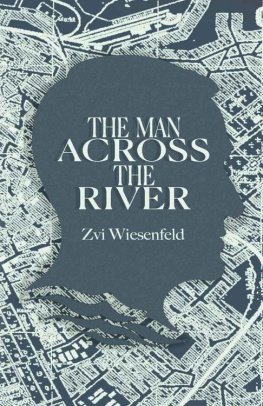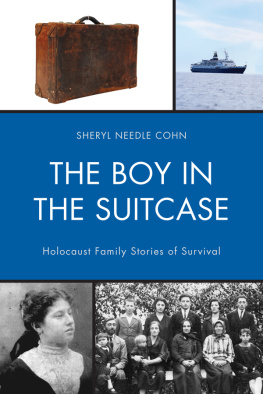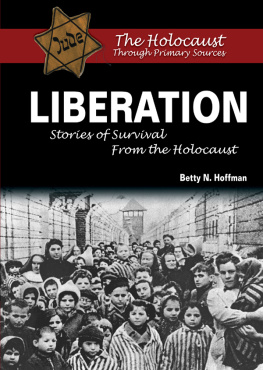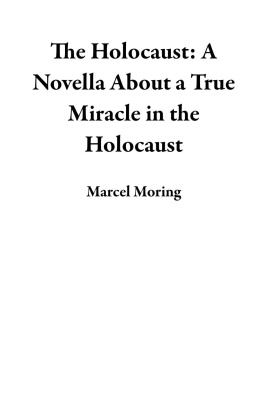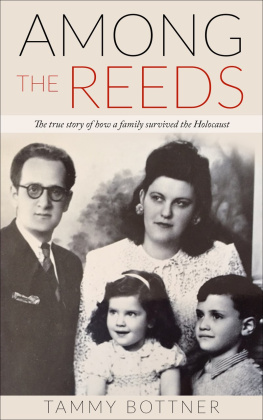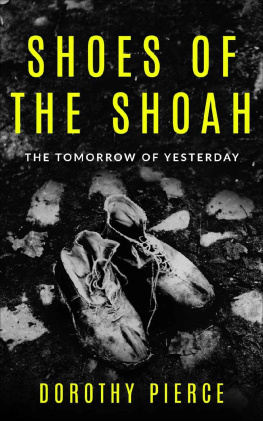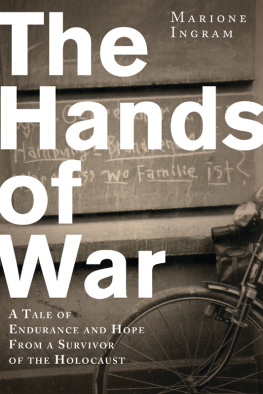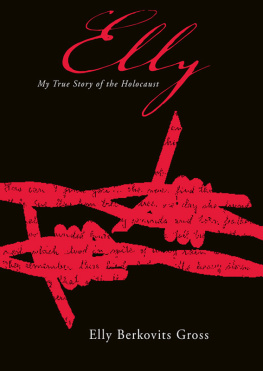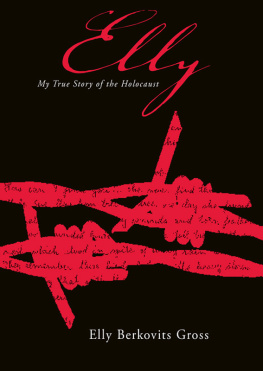Advance Praise
"The Man Across the River is an elegant and enthralling testament of the faith, courage, and hope of a Holocaust survivor written eloquently and lovingly by his adoring grandson. Both the book and the grandson are wonderful legacies of the life of Jacob Wiesenfeld, z"l."
- Rabbi Mark Dratch, Executive Vice President of the Rabbinical Council of America
"The Holocaust genre is riveting, horrifying, and more necessary than ever. The Man Across The River gives a voice to those so traumatized that they never spoke of their experiences, yet forged on to create a new reality. Zvi Wiesenfeld tells his grandfather's story, from a young child in Romania through his wife's untimely death, with a sense of awe, authenticity, and appreciation of his grandfather's tenacity and strength. I started reading it when I knew had other things to do, and then didn't stop."
- Yitzy Weinberg, Executive Director at Flatbush Community Fund
"The Man Across the River gives voice to a little-known epoch of the European Holocaust. I was at turns moved, horrified, and awed by Yankel Wiesenfeld's fortitude during his journey in the face of unimaginable tribulations. The author's descriptions of the Transnistrian killing fields were vivid and engrossing. Yankel's tale, as told by his grandson, is a must-read."
- Rabbi Steven A. Weil, National Director and CEO at Friends of the IDF
"What makes a mild mannered, easy going grandfather scream every night in his sleep? Determined to learn the history his grandfather would never talk about, Zvi Wiesenfeld did extensive research to outline the facts, and used his skill as a writer to fill in the blanks with a gripping narrative. The Man Across the River succeeds in telling a story that combines the drama of fiction with the all too real horrifying events that took place in Europe during the Holocaust."
- Betty Schwartz, The Jewish Link of Bergen County
The Man Across the River
The incredible story of one man's will to survive the Holocaust
ISBN: 9789493231078 (ebook)
ISBN: 9789493231061 (paperback)
ISBN: 9789493231290 (hardcover)
Publisher: Amsterdam Publishers, The Netherlands
The Man Across the River is Book 8 in the series:
Holocaust Survivor True Stories WWII
Copyright Zvi Wiesenfeld, 2021
Cover image: Grace Roberts
All Rights Reserved. No part of this publication may be reproduced or transmitted in any form or by any means, electronic or mechanical, including photocopy, recording or any other information storage and retrieval system, without prior permission in writing from the publisher.
Contents
In memory of my grandfather, Jacob Wiesenfeld
Jacob was left alone on the far side of the river. A stranger appeared and wrestled with him until just before daybreak. When the stranger saw that he could not defeat Jacob, he touched the upper joint of Jacobs thigh. Jacobs hip joint became dislocated during the struggle.
Let me go, said the stranger. Dawn is breaking.
I will not let you leave until you bless me.
What is your name?
Jacob.
Your name will no longer be Jacob, but Israel. You have grown strong before God and man. You have won.
(Genesis 32)
Preface
I was studying in Israel when my grandfather, Jacob Israel Wiesenfeld, passed away. I was 18 years old and enrolled in the post-high school program at the Yeshivat Kerem BYavneh Talmudic seminary, located on a kibbutz twelve kilometers east of the Mediterranean port town of Ashdod. I received the call from my father in my spartan dorm room on Sunday morning, the first day of the Hebrew month of Kislev, November 10, 2007.
Zvi, I just want to let you know that Saba passed away.
Oh. Baruch Dayan HaEmes (Blessed be the True Judge).
Do you want to come home for the funeral?
I didnt want my parents to spend the money. No, Im good.
Thats fine. Stay and learn (study) in his memory.
My grandfather had been ill for some time. He had spent his last few months at my parents house in northern New Jersey. He was eventually admitted to Maimonides Hospital near his home in the Borough Park section of Brooklyn. There, my grandfather contracted a staph infection. The infection proved fatal.
The funeral was held the following day. I sat huddled around a Nokia cell phone in my cousin Dovis cramped apartment in the Beis Yisroel neighborhood of Jerusalem. Dovi was studying in the Mirrer Yeshiva at the time. His mother, my aunt, called Dovi and muted her phone for the duration of the service. In this manner, my cousin and I listened to relatives eulogizing our grandfather.
Stories about my grandfathers hellish experiences in Europe were conspicuously absent from the eulogies. The Holocaust left him utterly traumatized; he never talked about it not to anyone.
My grandfather was the kindest, gentlest man I ever met. He worked hard and was devoted to his family and community. He was one of my role models and had an outsized influence on my life. Yet, I didnt truly know him. Very few people really did. He hid his pain away.
Several years ago, my sister and I were discussing my grandfather and his astonishing life. We are the last generation to personally know survivors, I said to her. The Holocaust dies with us. Someone needs to find out what happened to Saba.
I decided to write a book.
I traced my grandfathers life from the Yiddish-speaking Jewish Quarter of Czernowitz to the killing fields of Transnistria and to the regions concentration camps. I learned about his time as a conscript in the Red Army, his status as a refugee in an Italian displaced persons camp, his arrival on Ellis Island and his struggles as an immigrant in a new land.
This slim volume is the result of interviews with everyone I could find who knew my grandfather, gathering partially formed anecdotes and snippets of stories. I then deeply researched the Holocaust in Romania and the Ukraine until I was able to include the stories in a larger narrative. I filled in many details myself. I imagined virtually all of the dialogue and some of the characters. The result is a work of biographical fiction based upon the life story of a remarkable man. Throughout, I strove to do justice to my grandfathers story and to honor his memory.
Maps
Map of Czernowitz by Leon Koenig. From: http://czernowitz.ehpes.com/czernowitz3/newmaps/20sCzCity.jpg
Romanian Camps and Ghettoes, 1942. Collection: United States Holocaust Memorial Museum. https://images.app.goo.gl/FeLYEBDH9mebpYB66
1
D awn broke over Czernowitz as Yankel Wiesenfeld-Reiner hurried home, pulling his tattered coat tightly to him against the autumn chill of November 1937. It was a long shot, but there was a chance that he could get home and crawl into bed before Zushe awoke for morning

